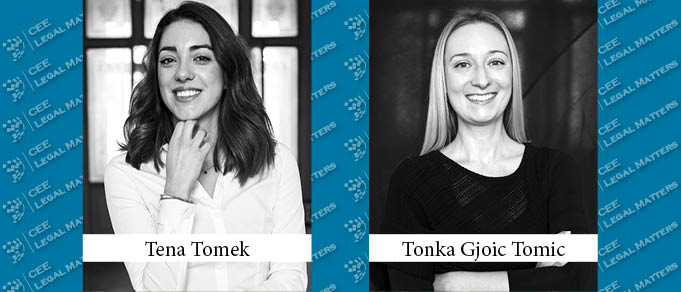Investment funds represent a rather small part of the financial market in Croatia, but they are undeniably growing in presence and importance. Investment funds are recognized as a significant economic driver for business growth, joining the already well-established banks, insurance companies, and pension funds.
According to information published by the Croatian Financial Services Supervisory Agency, there were 136 investment funds in Croatia at the end of August 2019, divided between alternative investment funds (36) and UCITS funds (100). The net asset value at the end of June 2019 amounted to a total of EUR 3.2 billion, with EUR 0.5 billion coming from alternative investment funds and EUR 2.7 billion from UCITS funds. These numbers reflect significant growth in the last five years, as in 2014 110 total funds accounted for a net asset value of only EUR 2.1 billion. Investment funds are growing in every way; as the investment funds industry develops in terms of variety of fund types and products it offers, its popularity is increasing. That results in a higher amount of assets available to investment funds for financing of business growth in Croatia.
Special attention should be paid to the alternative investment funds, such as private equity and venture capital, which play a key role in economic growth and are becoming ever more active on the Croatian market. The development and deployment of significantly larger amounts of money and the involvement of reputable and proficient investors in Croatia is seen in the context of an overall-maturing venture capital market in Europe.
Since 2014 the development of investment funds in Croatia has been happening within EU-funding frameworks. Financial support of economic development in a more general sense has been channeled through the European Structural and Investment Funds, jointly managed by the European Commission and the member EU countries. Another program aimed at mobilizing significant investments is the Investment Plan for Europe (the “Juncker Plan”). A financial pillar of the Juncker Plan is the European Fund for Strategic Investments (EFSI), which was initiated by the European Investment Bank, the European Investment Fund (EIF), and the European Commission to overcome the current investment gap in the EU by mobilizing private financing for strategic investments. Local support is provided by the Croatian Bank for Reconstruction and Development (HBOR).
Several initiatives have been launched under this framework, and here we will name only some of the most prominent. The Croatian Venture Capital Initiative was established in June 2018 based on a funding agreement between the EIF and the Croatian Ministry of Regional Development and EU Funds in order to improve access to SMEs finance, under which the selected fund should invest EUR 42 million across the entrepreneurial spectrum ranging from the early stage to the growth stage of start-ups. This is supplemented by the Croatian Growth Investment Program – a EIF and HBOR joint EUR 70 million equity investment program launched in January 2019 to support Croatian SMEs and small midcaps and provide midcaps with access to growth and expansion equity capital and catalyzing additional private-sector investments into funds and companies.
Finally, a noteworthy initiative is the setting-up of Croatia’s first social impact investment fund, under which the EIF plans to contribute EUR 15 million (almost entirely covered by the EFSI) and which – together with the amounts raised by the social impact fund — will allow for a EUR 30 million investment into Croatian and Slovenian SMEs committed to having an environmental and social impact, in addition to generating profit. This fund is the first Croatian venture capital fund managed by a fully Croatian team.
To conclude, under the EU umbrella more funding is coming to Croatia through proficient investors (such as the EIF) which signals the maturing of the Croatian investment funds market and the development of sophisticated Croatian fund managers, and which will in the end result in increased investor confidence and enhanced financial markets and overall business environment.
By Tena Tomek, and Tonka Gjoic Tomic, Partners, Marohnic, Tomek & Gjoic Law Firm
This Article was originally published in Issue 6.11 of the CEE Legal Matters Magazine. If you would like to receive a hard copy of the magazine, you can subscribe here.

